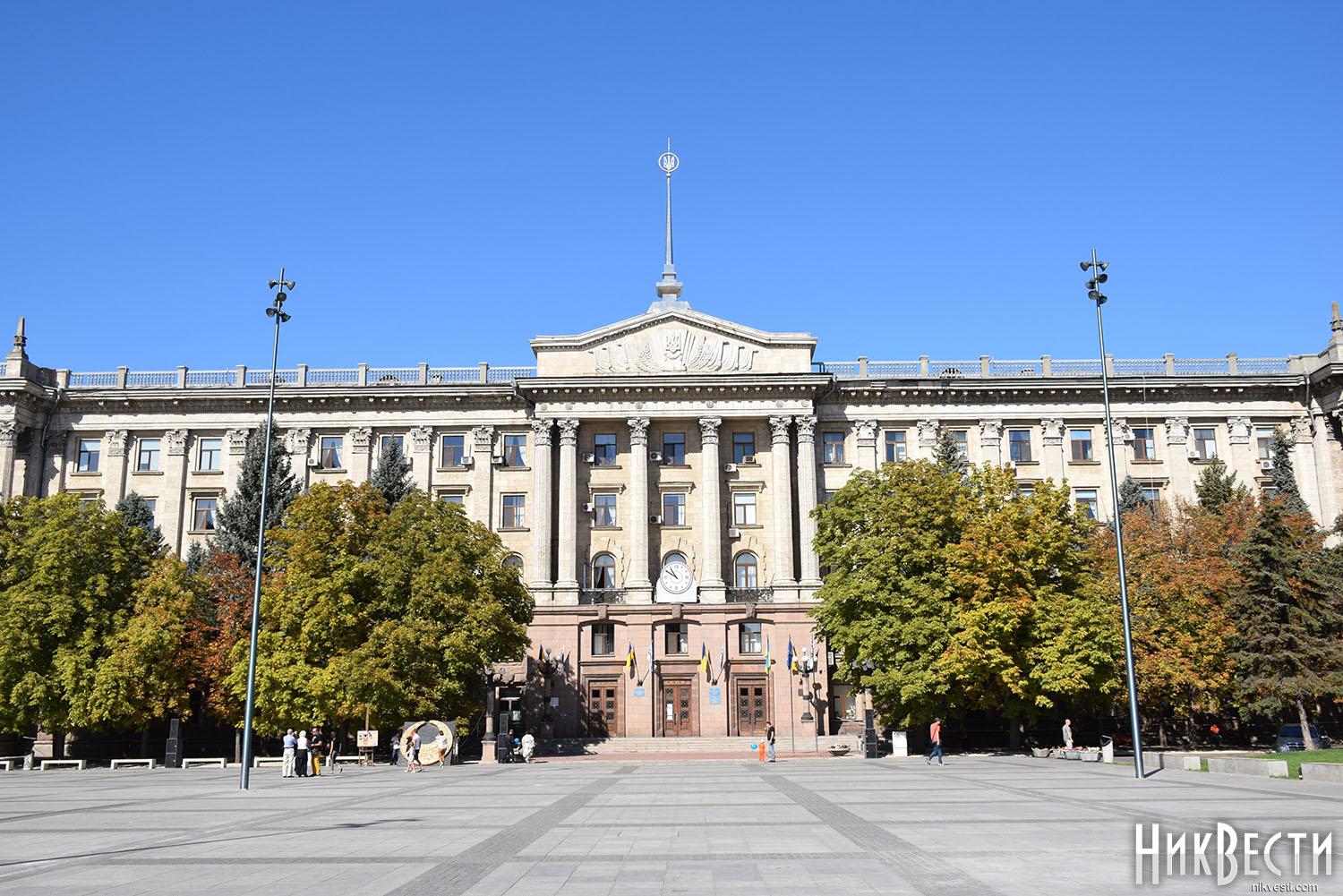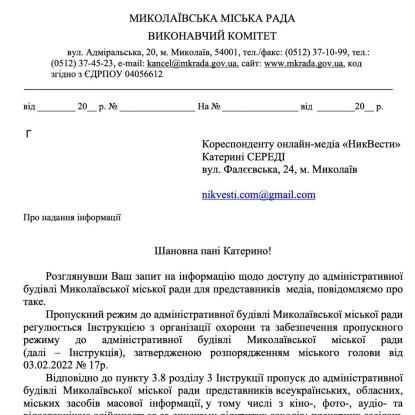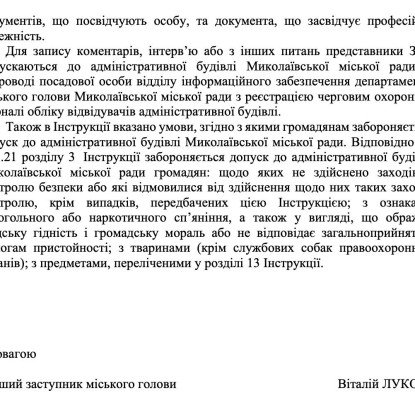Mykolaiv authorities have restricted journalists' access to the city council
- Alina Kvitko
-
•
-
16:56, 19 June, 2024
The Mykolaiv City Council introduced new rules of access for media representatives. Now journalists can enter the building only by invitation of officials.
This was reported by first deputy mayor Vitalii Lukov in response to a request from NikVesti.
The new rules of access to the Mykolaiv City Council are regulated by the «Instructions for the organization of security and access control», which was approved by the mayor's order on February 3, 2022.
According to the Instructions, representatives of the all-Ukrainian, regional and city media, including film, photo, audio and video equipment, can enter the building according to the lists of events prepared by the organizational department of the department for ensuring the activities of executive bodies of the Mykolaiv City Council.
Passes are issued with one-time electronic passes upon presentation of documents certifying identity and professional affiliation.
For recording comments, interviews or other issues, media representatives are allowed to enter the building accompanied by an official of the information support department of the mayor's department with registration in the visitor logbook.
«The instructions also define the conditions under which citizens are prohibited from accessing the administrative building. The ban applies to persons for whom no security control measures have been implemented or who have refused them, persons with signs of alcohol or drug intoxication, persons in a form that offends human dignity and public morality, persons with animals (except service dogs of law enforcement agencies) and persons with items listed in the instructions,» the document states.
As you know, since the beginning of the full-scale Russian invasion of Ukraine, journalists have not had access to events or official meetings held in the city council building for security reasons. However, the practice of restricting journalists' access to the Mykolaiv City Council was introduced back in 2021 during the COVID-19 pandemic.
At that time, Andrii Volkov, head of affairs of the executive committee, reported that such restrictions were being implemented in a test mode, in particular due to the requirements of the SBU to monitor all visitors to the Mykolaiv City Hall. That is, before entering the building of the city hall, visitors, in particular journalists, must say to whom exactly and on what issue they want to address. After that, the guards write down this information, call the representative of the city hall to whom the visitor came, he goes down to the checkpoint and picks up his guest.
However, the official also voiced another version of why access to the city council building for journalists was restricted. According to Andrii Volkov, officials feel discomfort because everything they say turns into news, which changes their behavior at work meetings in the presence of the media.
At the time, Mykolaiv City Hall also said that access to the building of the City Council was restricted in accordance with Cabinet of Ministers of Ukraine resolution №939 «For official use.»
It should be noted that all sessions of the Mykolaiv City Council, as well as deputy commissions and meetings of the executive committee, have been held online for the third year since the beginning of the full-scale war. The official meetings of the Mykolaiv city mayor with officials are also closed to the media. In contrast to the Mykolaiv City Council, from May 2024, journalists were granted renewed access to the sidelines of the Verkhovna Rada to cover the work of the parliament during plenary sessions in the same mode as during the covid pandemic.
We will remind you that in 2023, the Mykolaiv Regional Council, contrary to the regulations, refused NikVesti to attend the session, which is scheduled in remote mode.
Roman Holovenko, a lawyer at the Institute of Mass Information, stated that the Mykolaiv Regional Council had no right to deny journalists access to the meeting of the Regional Council, but should only warn about existing security risks.


